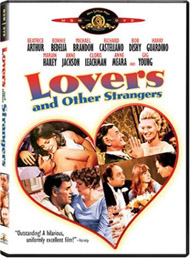
Paradise Alley
By Peter John Gardner
Oh, the unforseen pleasures that awaited me in this film!
I knew I was in for a treat from the opening credits. "Paradise Alley" opens up with Cosmo (Stallone) and his two brothers, Victor and Lenny, having a race for cash across some rooftops in 1940's Brooklyn. As they are runing, the audience is treated to a freezeframe whenever a new credit appears on the screen. Stallone directed this film, and I assume he had some kind of say during the editing of this film, so I'm baffled as to why he chose some of the frames to freeze that he did. Most are unflattering stills of Stallone with a "YEEEEEEARGH!!!" expression on his face.
Ok, so I'm watching the opening credits, and I notice that the opening theme is bad. Not typical 70s B-movie bad...more like, "Is this a joke?" bad. At first the song sounded like something Trey Parker would sing in an episode of South Park, and then I thought it might have been a better-left-buried Tom Waits tune (more on him later). It turns out that the song is sung by none other than Sylvester Stallone himself. My new mission in life is to track down a copy of the soundtrack, whether it be on vinyl or mp3. This song is so gloriously bad that it must be celebrated.
The movie itself is sort of what would happen if "Rocky" and "Over the Top" mated. Cosmo, Lenny, and Victor are three Italian-American brothers living in Hell's Kitchen during the 1940s. After displaying raw strength and brute in local arm wrestling matches, Victor is egged on by his two brothers to enter the world of professional wrestling. Stallone's Cosmo is a fast talking, con artist type, and Stallone really doesn't fit in a part like this. His semi-retarded sounding diction doesn't fit into the used car salesman-like personality that Cosmo's character needed (this is a role that should've gone to whomever the Steve Buscemi of the era was). Stallone starts booking Victor in local wrestling matches with dreams that Vic will earn enough money for the brothers to move out of Hell's Kitchen. Cosmo in particular wants to live on a houseboat off the coast of New Jersey (huh?) with his new girlfriend.
And, yes, we do get yet another awkward Stallone wooing a girl scene. And it's the same as in his previous movies. If I didn't know any better, I would start to think that Sly wanted to make this some kind of trademark of his.
As the film progresses, the seemingly passive and quiet Lenny, played by Armand Assante, begins to dominate the proceedings when Cosmo expresses concern that they are exploiting Victor. Lenny becomes this aggressive bastard that just wants to use Victor to win him money, no matter how badly Victor gets hurt.
Upping the surrealness of this movie is the presence of Tom Waits in a small role as a local piano player aptly named "Mumbles". Seeing the great Tom Waits interact with Sylvester Stallone was something that I never thought I'd see, and it makes me wonder why the two never formed a friendship during the making of this film. Imagine how awesome "Rocky V" or "Demolition Man" would have been had Tom Waits done the soundtrack. Hell, maybe Stallone will read this and decide to have Tom Waits in Rambo IV. One can only hope.
To sum it up, the story is basically about how money and power can tear even the closest of brothers apart. Friends and family are a person's backbone, but as Lenny shows in the film, sometimes your friends and family have their moments of narrowmindedness. No matter how high of a regard one may hold your friends and family, they are still human. They will fuck up. They will piss you off more often than you'd like throughout life. What's important to love people despite their differences. The longer you know someone, the more apparent their flaws become, and it's a test to see if one can forgive another despite their flaws and love them anyway. My family has pissed me off many times. My closest friends are not perfect people by any means. Should I love them any less? Should I only surround myself with different company that are more in line with how I think?
The answer is no. My friends and family aren't perfect, and I love them all the more for it. These are the people that even though they might finish off the bottle of orange juice I was saving or make an occasional white lie that I can see through, would still be there for me no matter what. It's foolish to hold grudges against your friends and family over mundane things that can be resolved with a simple talk.
I love my friends. Stallone's "Paradise Alley" has driven me to write a thank you letter of sorts to you. I know that I'm not the greatest person in the world. I can be quiet and boring. I'm forgetful and at times oblivious to other's feelings. What I like about my friends is that you're still there for me, despite myself. I love you all for it, and I'll always be there for you.
Stallone has made me all mushy, warm, and fuzzy. That's a sentence that I'd never thought I'd write in this lifetime.







